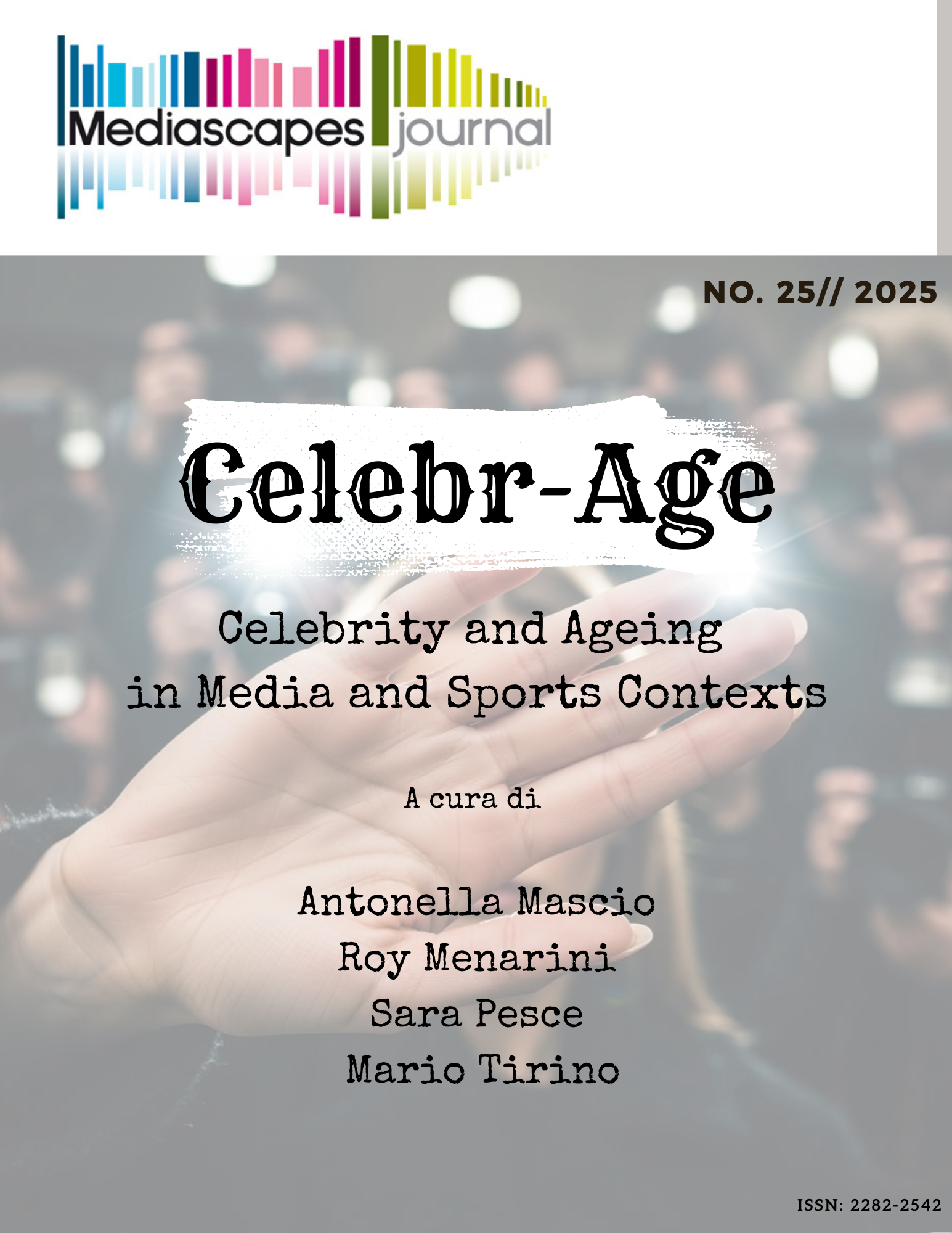The Double Standard of Screen Age
An Exploration Through Cultural Gerontology and Production Studies
Parole chiave:
Casting, Blind casting, Screen Age, De-ageing, Double standardAbstract
This article investigates the underexplored concept of "screen age" within the Italian film industry, situating it at the intersection of cultural gerontology and production studies. By analysing screen age as a distinct construct from chronological, biological, social, and psychological age, the article aims to illuminate how age is understood and operationalized in casting practices. Drawing on Susan Sontag’s concept of the double standard of ageing, the study focuses on the gendered biases that systematically marginalize older actresses, contributing to their underrepresentation and typecasting. Through an exploratory qualitative analysis based on semi-structured interviews with Italian casting directors, the article reveals the gatekeeping role of casting professionals and the socially-determined nature of assigning screen age, which often results in privileging youthful femininity over age diversity. The research also reflects on the evolving practices of diversity casting, questioning whether race- and gender-inclusive strategies might be extended to age-inclusive approaches. Although international practices such as digital de-ageing are emerging, they still remain peripheral in the Italian context. The paper argues for the need to integrate screen age more rigorously into academic and industrial discourse and proposes a rethinking of diversity paradigms to encompass age as a critical identity marker. The findings highlight both challenges and possibilities for inclusive representation in contemporary audiovisual media, advocating for systemic change in both creative and industrial spheres to counter entrenched ageist and gendered norms.



